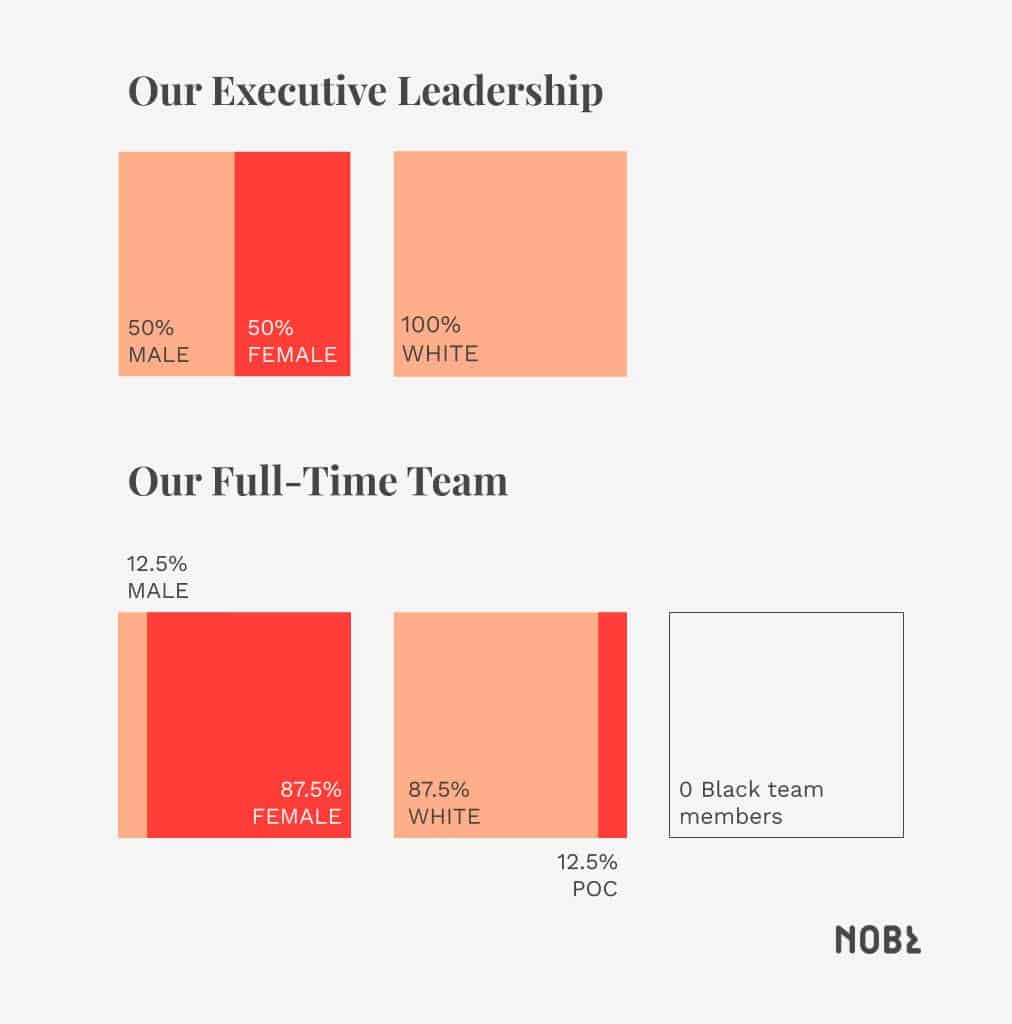Organizations are what they measure. If profit margins and stock prices are all that you’re tracking, you’ll never prioritize your people to the same extent you do your bottom line. Which is why it’s so encouraging to see, over these past few weeks, organizations publicly sharing the demographic breakdowns of their teams, especially that of executive leadership and boards. Without measuring and tracking your efforts to improve the hiring, retention, and advancement of diverse talent—and Black talent specifically—commitments and pledges are meaningless.
The call for increased transparency is coming as much from external forces as it is from employees within organizations:
- Sharon Chuter, founder of UOMA Beauty, launched Pull Up for Change to track and share cross-sector company demographics and public commitments to DEI and anti-racism work.
- Black Executives across the ad agency world have banded together to form 600&Rising— a nonprofit dedicated to holding the industry accountable to data transparency and diversity and inclusion reforms.
- Many companies are independently releasing diversity reports—you can track which ones in this public Google Sheet.
There’s mounting pressure for corporations that focus strictly on profit to rethink how they measure success entirely. People—especially Millennials and Gen Z-ers—are no longer willing to separate their social and political views from their employment or participation as consumers. This is a great time to reassess how you measure success:
- Align values and metrics. Your values should always emerge through defining your Purpose, Mission, and Vision. The measures you put in place then serve to indicate your progress, forward or backwards, in alignment with those values.
- Publicly share your demographic data and commitments to diversity, equity, and inclusion. Rather than making this a one-time event, prioritize tracking and include progress alongside any quarterly or annual reports. And keep in mind that it’s not just about increasing the number of new BIPOC hires, but also opportunities for equitable advancement and leadership, and the resources and funding that you allocate to make this a sustained effort. NOBL is participating in 600&Rising, and are making the following commitments:
- We’re building and supporting a more diverse team, with representation across levels of seniority. We’ll be analyzing our hiring practices and career development opportunities to ensure they are equitable and inclusive.
- We’re solidifying a relationship with a long-term justice, equity, diversity and inclusion (JEDI) partner to provide anti-racism and anti-oppression training to the NOBL team in addition to partnering with us on client work.
- We’re committed to doing deep analysis and evolution of our IP and offerings through an anti-racist and anti-oppression lens with the support of a JEDI team/domain expert.

- Consider sharing salary information. One tangible example where transparency can have a direct impact on employees is salary information. It’s been largely on employees to decide if they want to share their salary information with one another, but transparency of salary data is one of the most straightforward ways to close the wage gap, a vital step in building more equitable organizations.
- Listen to what your employees want. With employee-led movements on the rise, odds are your team is already thinking about the types of changes they want to see, and how to measure them. If your team is showing a lot of energy around a particular topic, let them lead the way. Deputize someone to head the effort, allocate the necessary resources, and provide executive sponsorship as your employees call for it.








The Evolutionary Edge
Every Link Ever from Our Newsletter
Why Self-Organizing is So Hard
Welcome to the Era of the Empowered Employee
The Power of “What If?” and “Why Not?”
An Adaptive Approach to the Strategic Planning Process
Why Culture/Market Fit Is More Important than Product/Market Fit
Group Decision Making Model: How to Make Better Decisions as a Team